This comprehensive blog post will delve into commercial roof installation and explore various aspects contributing to a successful roofing project.
Whether you are a business owner, a facility manager, or a contractor involved in commercial construction, understanding the intricacies of commercial roof installation is essential for ensuring a durable and efficient roofing system.
Whether you are a novice or an experienced professional, this blog post aims to equip you with the knowledge and understanding to make informed decisions regarding commercial roof installation.
5 Popular Commercial Roofing Options
Here are five popular commercial roofing options:
Single-Ply Membrane Roofing:
Single-ply membranes, like TPO (Thermoplastic Olefin), PVC (Polyvinyl Chloride), and EPDM (Ethylene Propylene Diene Monomer), are common choices for commercial roofs. They are lightweight, durable, and offer good resistance to UV rays and chemicals.
Built-Up Roofing (BUR):
BUR roofing consists of multiple layers of bitumen and reinforcing fabrics. It’s known for its excellent waterproofing properties and can be a cost-effective option for flat or low-slope roofs.
Metal Roofing:
Metal roofs, often made of steel, aluminium, or copper, are valued for their longevity and durability. They are resistant to fire, weather, and pests, making them a sustainable choice for commercial buildings.
Modified Bitumen Roofing:
Modified bitumen is a hybrid roofing system that combines the flexibility of a single-ply membrane with the strength of a built-up roof. It’s suitable for both low-slope and flat roofs and offers good waterproofing.
Green Roofing:
Green roofs are eco-friendly options incorporating vegetation and growing mediums atop the roofing structure. They provide insulation, reduce heat absorption, and contribute to improved energy efficiency while enhancing the aesthetics of a building.
The Importance of Professional Maintenance for Commercial Roofs
Maintaining a commercial roof is a crucial aspect of preserving the integrity and longevity of any commercial building. Commercial roofs, often covering larger structures, have unique requirements and challenges compared to residential roofs. Therefore, it’s essential to recognize the significance of professional roofing maintenance for commercial roofs.
Extended Roof Lifespan:
One of the primary benefits of professional maintenance is the extension of your commercial roof’s lifespan. Routine inspections and upkeep can identify and address minor issues before they become significant problems, helping your roof last for its intended lifespan and potentially beyond.
Cost Savings:
Investing in regular professional maintenance can save you significant costs in the long run. Preventative measures and timely repairs are usually less expensive than dealing with extensive damage or roof replacement. Maintenance helps you avoid costly emergency repairs or premature roof replacement.
Warranty Compliance:
Many commercial roofing systems have warranties that require regular maintenance to remain valid. Neglecting professional upkeep could lead to warranty voidance, leaving you responsible for future repairs or replacements.
Energy Efficiency:
Well-maintained commercial roofs are more energy-efficient. Proper insulation and sealing help regulate indoor temperatures, reducing heating and cooling costs. This energy efficiency contributes to a greener and more sustainable operation.
Safety and Liability:
Neglected roofs can pose safety hazards. Leaks, loose materials, or debris on the roof can lead to accidents for maintenance workers or visitors. Proper maintenance reduces these risks and minimizes liability concerns.
Preserving Interior Assets:
Commercial buildings often house valuable assets and equipment. A well-maintained roof protects these assets from water damage and other environmental factors, reducing the risk of costly interior repairs or replacements.
Business Continuity:
Roof problems can disrupt operations, causing downtime and financial losses. Professional maintenance helps ensure that your business can operate smoothly without interruptions caused by unexpected roof issues.
Customized Solutions:
Professional roof maintenance plans are tailored to the specific needs of your roof. Roofing experts can identify vulnerabilities and create a plan that addresses them effectively, ensuring your roof remains in top condition.
Estimating the Cost of Commercial Roof Installation
Estimating the cost of a commercial roof installation involves considering several factors. While it’s essential to consult with professional contractors for accurate cost projections specific to your project, here are some key elements to consider:
Roof Size:
The size of the commercial roof is a primary factor in determining the cost. The larger the roof area, the more materials and labour will be required, which can increase the overall cost of the installation.
Roofing Materials:
The choice of roofing materials significantly affects the cost. Various options, such as built-up roofing (BUR), single-ply membranes (TPO, PVC, EPDM), metal roofing, or modified bitumen, have different price points. The material selection should consider factors like durability, energy efficiency, and maintenance requirements.
Roof Complexity:
The complexity of the roof’s design and features can impact the cost. Factors such as the presence of skylights, vents, HVAC units, or multiple roof levels can add to the complexity of the installation process, potentially increasing labour and material costs.
Insulation:
Insulation is crucial for energy efficiency and building code compliance. The type and thickness of insulation required for the commercial roof will influence the cost. Higher-quality insulation materials may cost more upfront but can provide long-term energy savings.
Roof Access and Safety:
The accessibility of the roof and the need for safety measures during the installation process can impact the overall cost. If additional equipment or safety measures like scaffolding or fall protection systems are required, they may add to the project’s expenses.
Removal of Existing Roof:
If an existing roof needs to be removed before installing a new one, the cost of removal and disposal should be considered separately. The complexity of the removal process and the type of existing roof can influence this cost.
Labour Costs:
Labour costs are a significant portion of the overall installation cost. Factors such as local labour rates, project timelines, and the expertise of the roofing contractors can impact labour expenses. Obtaining multiple quotes from reputable contractors will help gauge the average labour costs in your area.
Understanding the Components of a Typical Roof Installation Warranty
A roof installation warranty is a crucial aspect of any roofing project, offering peace of mind to property owners that their investment is protected. To make the most of this warranty, it’s essential to understand its key components:
Coverage Duration:
The first element to consider is the warranty duration. Standard coverage periods range from 5 to 20 years. Some premium warranties may offer even more extended protection.
Workmanship Warranty:
This aspect of the warranty covers the quality of the installation itself. If any issues related to the installation process arise during the warranty period, the contractor is responsible for rectifying them at no additional cost to the property owner.
Material Warranty:
Many roofing materials come with their own warranties from the manufacturer. These warranties typically cover material defects, premature wear, or other material-specific issues. The terms and length of material warranties can vary considerably.
Exclusions:
Be sure to review the exclusions listed in the warranty carefully. These are conditions or circumstances that are not covered. Typical exclusions may include damage caused by natural disasters (e.g., hurricanes, earthquakes), neglect, or unauthorized modifications to the roof.
Maintenance Requirements:
Most warranties include maintenance requirements to keep the warranty valid. Regular roof maintenance is crucial; failure to perform it could void the warranty.
Prorated vs. Non-Prorated:
Consider whether the warranty is prorated or non-prorated. Prorated warranties decrease in value over time, meaning the coverage amount decreases as the years pass. Non-prorated warranties provide consistent coverage throughout the warranty period.
Manufacturer vs. Contractor Warranty:
Determine if the roofing material manufacturer or contractor provides the warranty. It’s essential to understand who is responsible for warranty fulfilment and to have clear contact information.
Claim Process:
Familiarize yourself with the process for making a warranty claim. Property owners should promptly contact their contractor or manufacturer to initiate the warranty claim process if any issues arise during the warranty period.
Conclusion
In conclusion, “Roofing for Success: Expert Insights into Commercial Roof Installation” has provided a comprehensive overview of the critical aspects of achieving a successful commercial roof installation. Throughout this blog post, we have examined the importance of engaging a commercial roof inspector to assess the existing roof’s condition and ensure quality and compliance during installation.
We have highlighted the significance of commercial roof insulation in enhancing energy efficiency and occupant comfort. Proper insulation materials and installation techniques can significantly reduce energy consumption and maintain a comfortable interior environment.
Understanding the process of estimating the cost of a commercial roof installation is essential for budgeting and decision-making. By considering these insights and engaging with reputable professionals, such as Mr. Roofer, you can ensure a successful roofing project that protects your building, enhances energy efficiency and provides long-term durability and peace of mind.
How can I find reliable commercial metal roof installers near my location?
To find reliable commercial metal roof installers near you, you can search online directories, consult with local roofing associations, ask for referrals from colleagues or friends, or contact reputable roofing companies in your area.
Remember, it’s always best to consult with industry professionals and experienced contractors to address your questions and concerns regarding commercial roof installation.
What is a typical warranty offered for commercial roof installations?
Typical warranties for commercial roof installations can vary but often range from 10 to 30 years. The warranty coverage and duration depend on factors such as the type of roofing system, materials used, and the contractor’s terms.
How much does a new commercial roof cost?
The cost of a new commercial roof varies depending on factors such as roof size, materials, insulation, and additional features. It is best to consult with professional contractors who can provide accurate cost estimates based on your specific project requirements.
Why are commercial roof gutters important?
Commercial roof gutters help manage rainwater and prevent water damage to the building. Proper gutter design, installation, and maintenance ensure adequate water drainage and protect the structural integrity of the commercial property.
What is the typical cost of a commercial roof inspection?
The cost of a commercial roof inspection can vary on factors such as roof size, accessibility, and the inspector’s expertise. Obtaining quotes from multiple inspectors to compare costs and services is recommended.
How can I estimate the cost of a commercial roof installation?
The cost of a commercial roof installation depends on various factors, including roof size, materials, complexity, and labour. A detailed commercial roof estimate from reputable contractors is essential for accurate cost projections.
What is the purpose of a commercial roof hatch?
A commercial roof hatch provides a safe and convenient entry point for inspections, repairs, and equipment installation on the roof. It allows easy access and maintenance while ensuring the safety of workers.
Why is commercial roof insulation important?
Commercial roof insulation helps regulate temperature, reduces energy consumption, and enhances occupant comfort. It is crucial for achieving energy efficiency and ensuring a comfortable interior environment.
What role does a commercial roof inspector play in the installation process?
A commercial roof inspector assesses the existing roof’s condition, identifies potential issues, and provides recommendations for repairs or replacement. Their expertise ensures that the installation meets quality standards and compliance requirements.

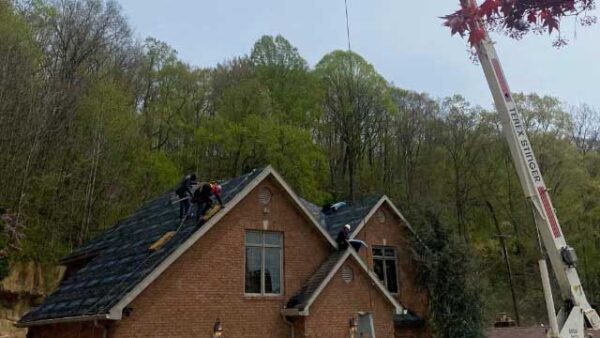

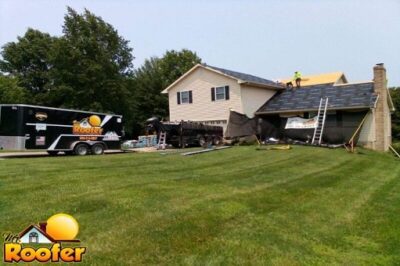
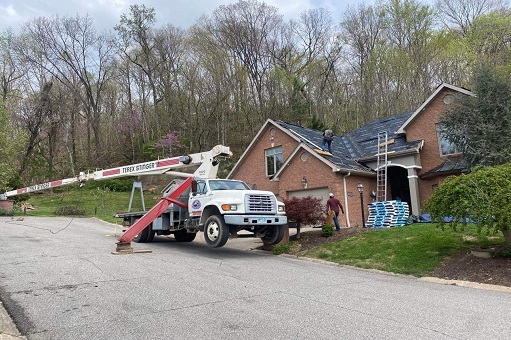
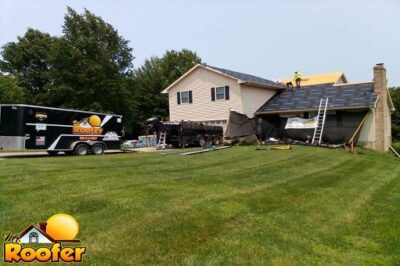
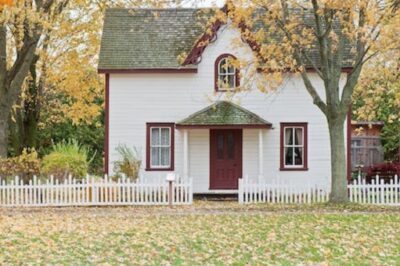
0 Comments